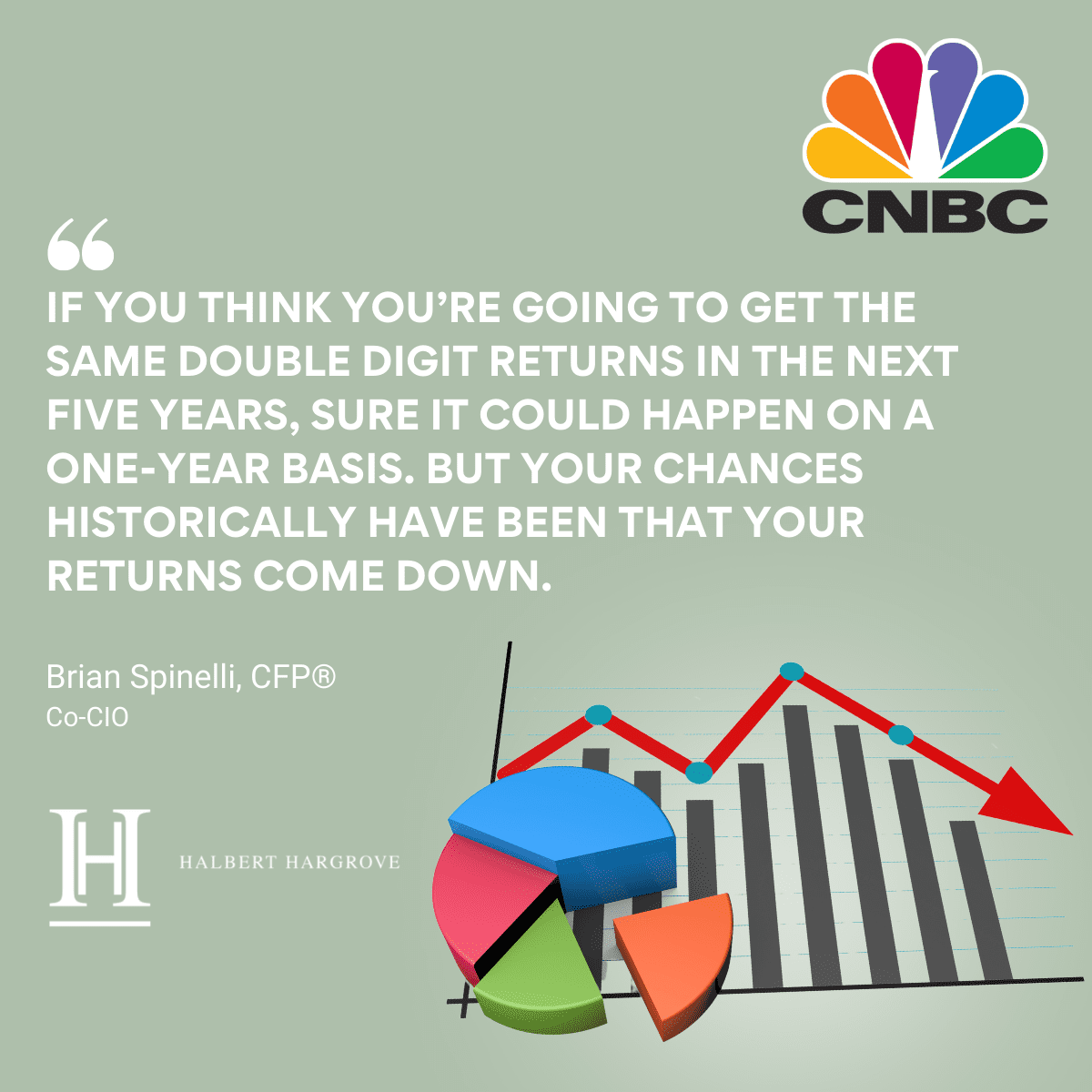By Greg Iacurci and Lorie Konish in CNBC, featuring Brian Spinelli, CFP®, AIF®, Co-Chief Investment Officer
As Inauguration Day nears, investors are trying to unravel what booms or busts lay ahead under President-elect Donald Trump.
Trump’s campaign promises — from tariffs to mass deportations, tax cuts and deregulation — and his picks to lead federal agencies suggest both risks and rewards for various investment sectors, according to market experts.
Republican control of both chambers of Congress may grant Trump greater leeway to enact his pledges, experts said. However, their scope and timing is far from clear.
“There’s so much uncertainty right now,” said Jeremy Goldberg, a certified financial planner, portfolio manager and research analyst at Professional Advisory Services, which ranked No. 37 on CNBC’s annual Financial Advisor 100 list.
“I wouldn’t be making large bets one way or another,” Goldberg said.
Sectors often fare differently than expected
Past market results show why it’s difficult to predict the sectors that may win or lose under a new president, according to Larry Adam, chief investment officer at Raymond James.
When Trump was elected in 2016, financials, industrials and energy outperformed the S&P 500 in the first week. However, for the remaining three years and 51 weeks, those same sectors significantly underperformed, Adam said.
“The market is known to have these knee-jerk reactions trying to anticipate where things go very quickly, but they don’t necessarily last,” Adam said.
Sector performance during the past four presidential administrations
What’s more, sectors that are expected to do well or badly based on a president’s policies have sometimes gone the opposite way, according to Adam.
For example, the energy sector was down by 8.4% during Trump’s first administration, despite deregulation, record oil production and a rise in oil prices. Yet the energy sector climbed 22.9% under Biden as of Nov. 19, despite the administration’s push for renewables and sustainability.
For that reason, Raymond James ranks politics eighth for its potential impact on sectors. The seven factors that have more influence, according to the firm, are economic growth, fundamentals, monetary policy, interest rates and inflation, valuations, sentiment and corporate activity.
Here’s how Trump’s policy stances could influence eight sectors: autos, banks, building materials and construction, cryptocurrency, energy, health care, retail and technology.
Automobiles
The auto sector — like many others — will likely be a mixed bag, experts said.
Trump’s antipathy for electric vehicles is likely to create headwinds for EV producers.
His administration may try to roll back regulations such as a Biden-era tailpipe-emissions rule expected to push broader adoption of EVs and hybrids. He also intends to kill consumer EV tax credits worth up to $7,500 — although states such as California may try to enact their own EV rebates, blunting the impact.
Losing the federal credit would make EVs more costly, driving down sales and perhaps making “per unit economics even less favorable” for automakers, John Murphy, a research analyst at Bank of America Securities, wrote in a Nov. 21 research note.
Some companies seem well-positioned, though: Ford Motor, for example, “has a healthy pipeline of hybrid vehicles as well as traditional [internal combustion engine] vehicles to supplement the EV offerings,” Murphy wrote.
Tariffs and trade conflict pose threats to the auto industry, since the U.S. relies heavily on other nations to manufacture cars and parts, said Callie Cox, chief market strategist at Ritholtz Wealth Management.
They “could affect the cost and availability of cars we see in the U.S. market,” Cox said.
Economists expect tariffs and other Trump policies to be inflationary.
In that case, the Federal Reserve may have to keep interest rates higher for longer than anticipated. Higher borrowing costs may weigh on consumers’ desire or ability to buy cars, Cox said.
However, lower EV production could be a boon for companies that manufacture traditional gasoline cars, experts said.
Trump has also called for a “drill, baby, drill” approach to oil production. Greater supply could reduce gas prices, supporting demand for gas vehicles, experts said. But trade wars and sanctions on Iran and Venezuela could have the opposite impact, too.
— Greg Iacurci
Banks
Trump’s first administration eased certain regulations for banking rules, fintech firms and financial startups.
Likewise, Trump’s second term is expected to usher in lighter financial regulations.
That may help bolster profitability in the sector, and therefore stock prices, said Brian Spinelli, co-chief investment officer at Halbert Hargrove in Long Beach, California, which is No. 54 on the 2024 CNBC FA 100 list.
“The larger banks probably benefit more from that,” Spinelli said.
Less regulation — combined with the prospect that interest rates could stay higher — will provide a net positive for the bank industry, since banks may be able to lend out more risk-based capital, said David Rea, president of Salem Investment Counselors in Winston-Salem, North Carolina, which is No. 8 on the 2024 CNBC FA 100 list.
One issue that emerged this year that could resurface is concern about regional banks’ exposure to commercial real estate, Spinelli said.
“It wasn’t that long ago, and I don’t think those problems disappeared,” Spinelli said. “So you question, is that still looming out there?”
— Lorie Konish


